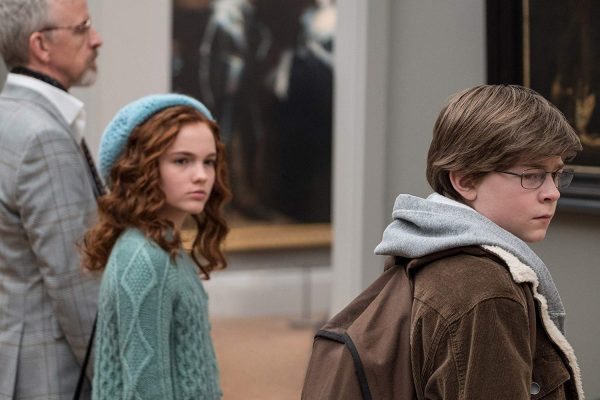In 1654 Carel Fabritius, Rembrandt’s student would paint a chained goldfinch. This painting would be one of only a few which would endure an explosion which would claim its painter. Surviving one brush with destruction, novelist Donna Tartt places this tiny bird at the centre of her 2014, Pulitzer prize-winning novel The Goldfinch, in which a terrorist attack on the New York Met Museum of Art devastates young Theo Decker’s life after he takes the painting from the wreckage.
A coming-of-age narrative, Tartt’s The Goldfinch divides critics over its sensitive detailing of a young man’s transitions into adulthood, dealings with substance abuse at the centre of middle-class America in a novel which follows a cut-out guide of literary cliché. How fitting, then, that its cinematic adaptation follows in those footprints, unashamedly revelling in its use of tropes.
Lathering itself in the dense plot, a key issue is a mass build-up, failing to relieve itself until the closing moments, which, in truth, become so viscous that little explanation or ‘pay-off’ is achievable. Character threads have their solutions off-screen, dependable performers such as Nicole Kidman, Sarah Paulson and Aneurin Barnard are never given enough clout to allow real characterisation, and we’re informed how things neatly parcel into concluding, but never shown: the cardinal sin of film making.
Rather than an in-depth adaptation, it’s a cliff-note explanation. Rather than its iteration, it’s a pale imitation. A homunculus piece struck together with quick edits. It suffers in losing a connection with story; Theodore’s suicidal turn, the relationship with his father and his future fiance are all half-attempts. John Crowley’s direction is a self-referential piece akin to one of the story’s hodgepodge antiques, picking what feels like the book, without what should translate to cinema.
A trifecta of combating genres is at work during The Goldfinch. There are elements of a melodrama, attempts at a romantic comedy, borrowing quite heavily from thriller aspects in a vain attempt to inject interest. Never finding a footing, Peter Straughan’s screenplay deviates at moments where our attentions may peak. Make no bones about it, The Goldfinch flutters with genius in brief scenes. Scenes which, with extension, would drastically improve the overall flow.
Among them are where we get a grip of young Pippa, played by Aimee Laurence. The time we spend in her opaque room, a distinct yellow hue which feels thick with nostalgia, are the films best moments. As she and Theo grow closer, discussing their difficulties, they kindle an innocent connection, devoid of sully. Similarly, scenes with a young Boris (Finn Wolfhard) are all too soon neglected as we leap around, ricocheting against transitions.
What is agonisingly painful is the sheer waste of talent who valiantly craft a distinctly gorgeous film. Roger Deakins does his best to convey the gravity behind The Goldfinch’s cinematography. The snow under street lamps of New York, the barren heat of an abandoned cul-de-sac in Texas – there is such a sense of isolation in the face of middle-class America, surrounded by the many or the few, which Deakins captures. Tragically, the editing cuts so rapidly around that we lose a measure of the effect.
The Goldfinch is held to a high standard, perhaps unjustly. The wealth of creative talent, capable cast members all framed by a master of cinematography – colossally let-down by a paradoxical ability to fearfully refrain from change, while also altering key areas. It’s narrative structure, leaping around in its time frame, shakes our expectations as we are torn from genuine sincerity or interest.
@Filmhouse, Edinburgh from Fri 27 Sep 2019
